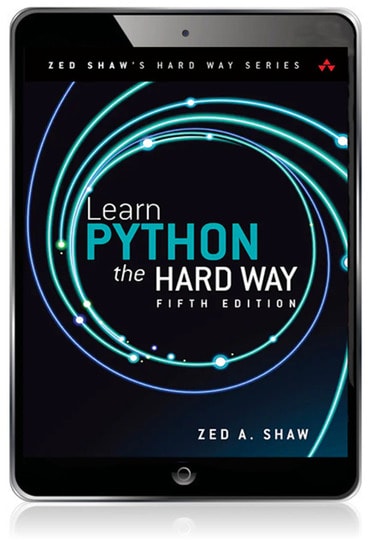
Learn Python 3 the Hard Way, 5th edition
Published by Addison-Wesley Professional (February 1, 2024) © 2024
- Zed A. Shaw
Title overview
You Will Learn Python!
Zed Shaw has created the world's most reliable system for learning Python. Follow it and you will succeed - just like the millions of beginners Zed has taught to date! You bring the discipline, persistence, and attention; the author supplies the masterful knowledge you need to succeed.
In Learn Python the Hard Way, you'll learn Python by working through 60 lovingly crafted exercises. Read them. Type in the code. Run it. Fix your mistakes. Repeat. As you do, you'll learn how a computer works, how to solve problems, and how to enjoy programming, even when it's driving you crazy.
- Install a complete Python environment
- Organise and write code
- Fix and break code
- Basic mathematics
- Strings and text
- Interact with users
- Work with files
- Looping and logic
- Object-oriented programming
- Data structures using lists and dictionaries
- Modules, classes, and objects
- Python packaging
- Automated testing
- Basic SQL for Data Science
- Web scraping
- Fixing bad data (munging)
- The 'Data' part of 'Data Science'
It'll be frustrating at first. But if you keep trying, you'll get it - and it'll feel amazing! This course will reward you for every minute you put into it. Soon, you'll know one of the world's most powerful, popular programming languages. You'll be a Python programmer.
